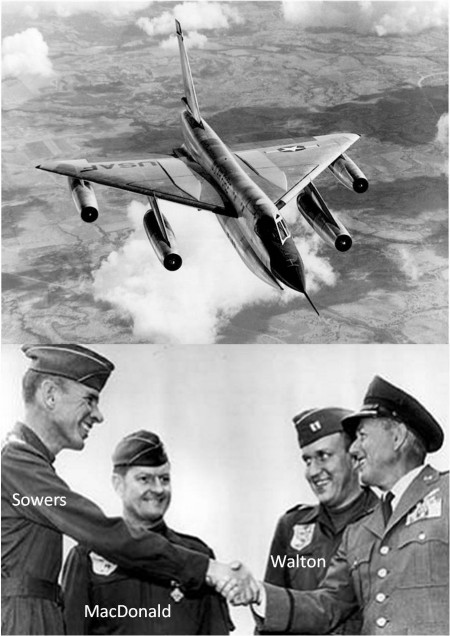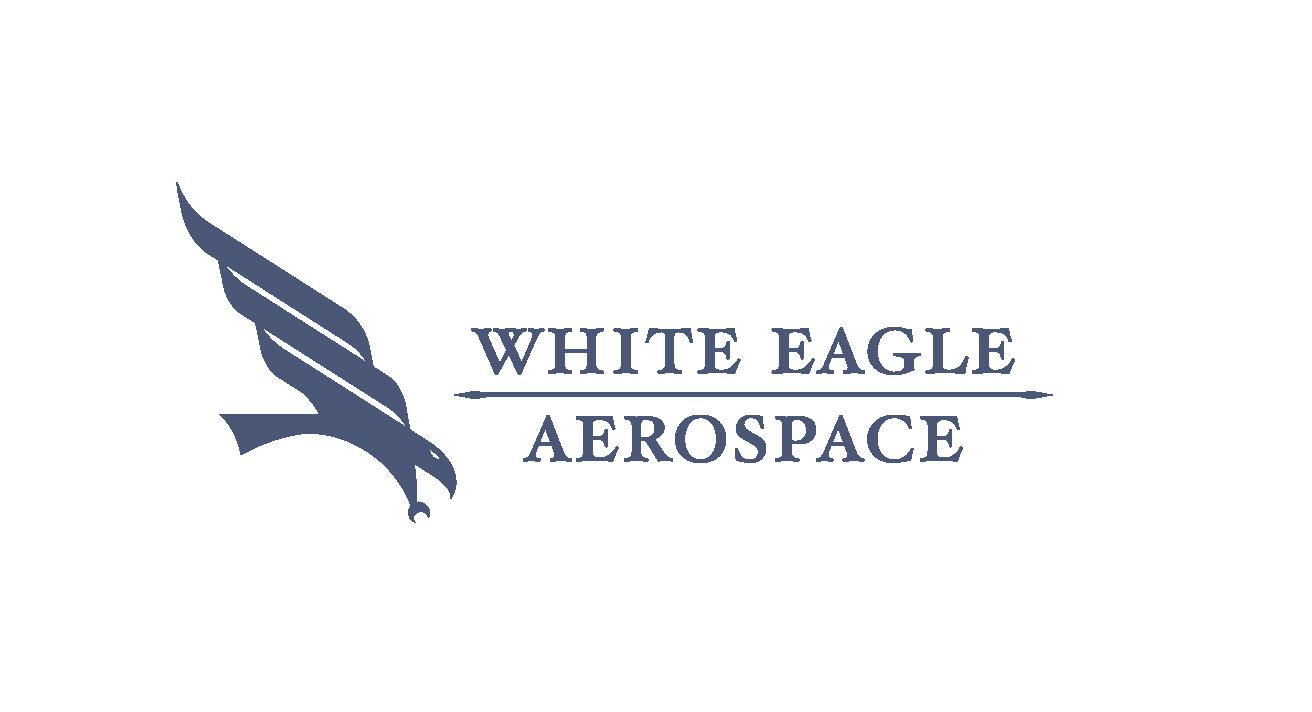
Fifty-one years ago this month, a USAF/Convair B-58A Hustler from the 43rd Bomb Wing at Carswell AFB, Texas set a trio of transcontinental speed records in a round trip from Los Angeles to New York and back. This historic feat was accomplished as part of Operation Heat Rise.
The USAF/Convair B-58A Hustler holds the distinction of being the world’s first supersonic bomber. A product of the 1950’s, the delta-winged aircraft measured 96.8 feet in length and had a wing span of 56.8 feet. GTOW stood around 163,000 lbs. Power was provided by a quartet of General Electric 79 turbojets which produced 62,000 lbs of sea level thrust in afterburner.
The Hustler’s performance was impressive then and now. With a maximum speed of 1,325 mph, the aircraft had a service ceiling of 64,800 feet and a combat radius of 1,520 nm. The Hustler’s mission range could be markedly increased via aerial refueling.
The B-58’s three man air crew sat in tandem in the order of pilot, navigator and Defensive Systems Officer (DSO). Each man occupied a separate flight station which was equipped with an ejection pod for protection during high speed egress.
The Hustler was part of Strategic Air Command. It’s primary mission was delivery of nuclear weapons. The aircraft served in the air force’s operational inventory for a period of just 10 years years (1960 to 1970). A total of 116 airframes were produced and none were used in anger.
The Hustler’s high speed capability led to the type being used to establish numerous speed records during its operational life. Operation Heat Rise was one such effort. The goal of this project was to establish segmental and overall speed records for a round trip flight between the west and east coasts of the United States.
On Monday , 05 March 1962, the crew of Major Robert G. Sowers (pilot), Captain Robert MacDonald (navigator) and Captain John T. Walton (DSO) departed Carswell AFB, Texas in B-58A S/N 59-2458. Other than a new wax job, the aircraft was no different than the other Hustler airframes in the inventory.
After refueling out over the Pacific Ocean, the aircraft started its coast-to-coast speed run at Mach 2 over Los Angeles, California. Incredibly, the critical ground station monitoring the start time did not record passage of the aircraft overhead. Thus, airplane and crew were called back for a restart! This meant another trip to the tanker out over the Pacific to top off the Hustler’s fuel tanks prior to the second try.
Once officially underway, the trip from overhead Los Angeles to overhead New York took 2 hours and 58.71 seconds for an average speed of 1,214.65 mph. The aircraft was refueled over Kansas on its way east. Once out over the Atlantic Ocean, the Hustler reversed course and hit the tanker again.
The return trip from overhead New York to overhead Los Angeles was flown in 2 hours, 15 minutes and 50.08 seconds. As on the eastbound leg, the Hustler took on a load of gas over Kansas. The entire round trip required 4 hours, 41 minutes and 14.98 seconds inclusive of refueling. Each of the aforementioned trip times established new performance records.
An interesting aspect of the return leg to Los Angeles was that the Hustler flew faster than the rotational movement of the earth. Thus, the aircraft and its crew arrived in California roughly 41 minutes earlier than the sun!
After landing in Los Angeles, the crew was enthusiastically greeted by members of the air force, the aerospace industry and the media. In recognition of their accomplishments, each man received the USAF Distinguished Flying Cross at the hand of USAF General Thomas S. Power, Chief of Staff.
Finally, for their impressive performance during Operation Heat Rise, crew and aircraft were the recipients of both the 1962 MacKay and Bendix Trophies. This marked the last time that the latter was ever awarded.

